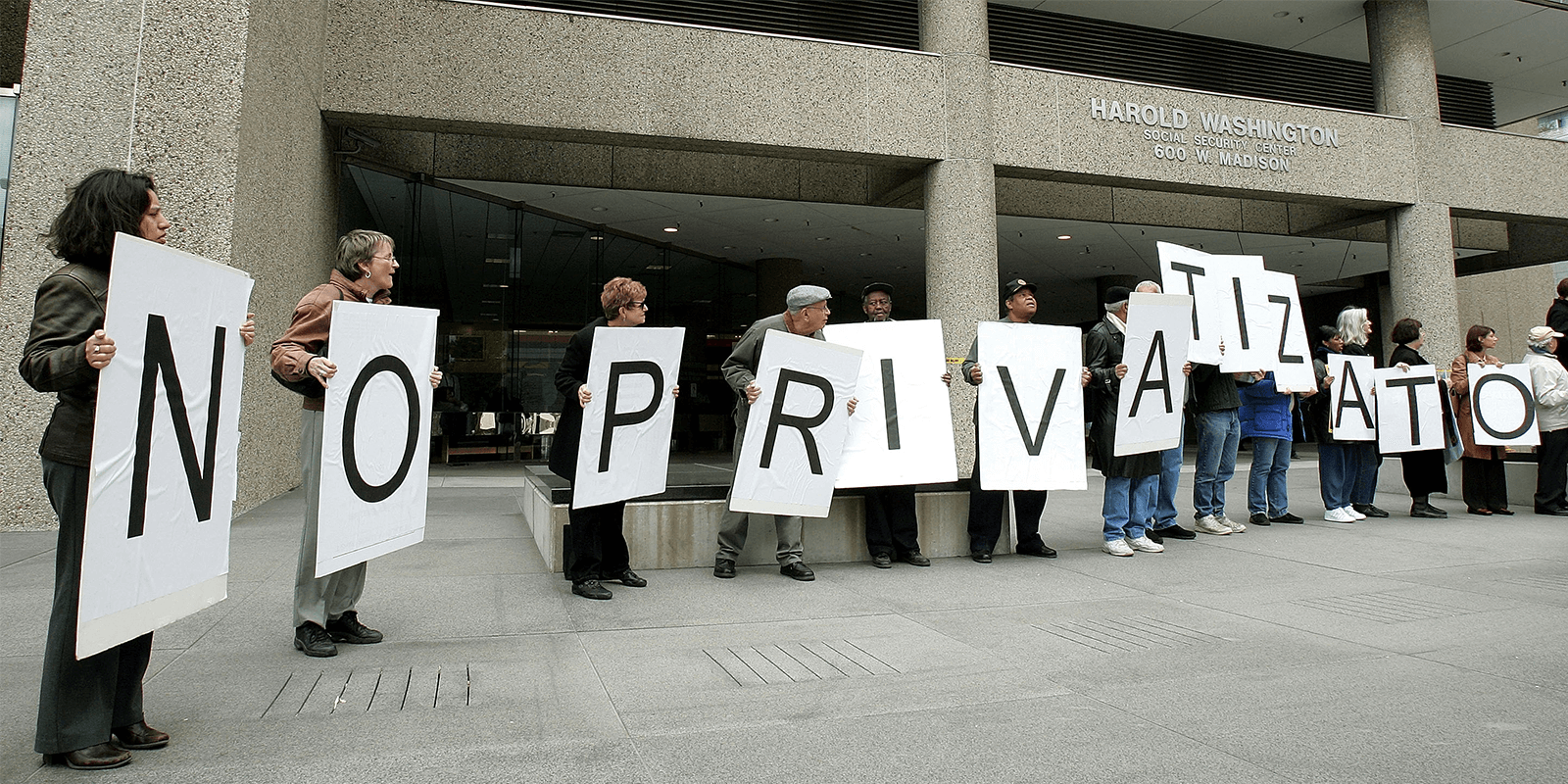North American members of Public Services International – an international confederation of public sector labor unions – gathered in Washington, D.C., last week to discuss the many threats posed by privatization, and to learn how AFSCME has fought successfully fought against outsourcing.
AFSCME Secretary-Treasurer Elissa McBride opened the discussion, welcoming leaders and representatives from unions across North America, including the Canada’s National Union of Public and General Employees (NUPGE), the Canadian Union of Public Employees (CUPE), as well as the American Federation of Teachers (AFT).
McBride started off by describing the AFSCME Strong campaign. By aligning the priorities of AFSCME affiliates with AFSCME Strong’s objective of having 1 million one-on-one member conversations; by establishing firm, measurable goals; and by fostering leadership at every level of the union, AFSCME remains on a solid footing despite the adverse ruling in Janus v. AFSCME, McBride said.
“Since the Janus decision came down last June, we’ve retained 94% of the workers we represent. And even though this represents a 6% decrease thanks to the Supreme Court decision, it crushed union analysts’ expectations, which anticipated a loss upwards of 30%,” McBride said in prepared remarks.
The threat posed by the special interests behind Janus is only one of the challenges AFSCME and other public sector unions face. Another is privatization and outsourcing of public services, which AFSCME has a long history of combating.
McBride described how privatization leads to lower wages and diminished working conditions, and also fuels inequality, particularly for women and people of color.
Henry Garrido, executive director of District Council 37, which represents 125,000 members and 50,000 retirees in New York City, provided a firsthand account of how, in the wake of the 9/11 terrorist attacks, the city’s budgets increased, which led to rampant and sometimes corrupt outsourcing of public services.
“DC 37 saw firsthand the booming budgets, but we also saw cuts to city workers for 12 straight years,” recalled Garrido, who’s also an AFSCME International vice president.
Garrido said that outsourcing led to “lower wages for workers, lower quality services, and diminished labor rights.” He also explained that as a result of widespread outsourcing and the cost overruns associated with it, DC 37 “launched a massive insourcing campaign.”
“We need more solidarity so we can fight” the effects of outsourcing, he said.
Garrido emphasized that there is no private substitute for full-time public service workers.
AFSCME has a long history of fighting privatization. Our Research and Collective Bargaining Services Department shared high-level takeaways from those fights. Those include the importance of building coalitions with labor and civic allies; developing a clear and concise message around a particular fight; and educating community members about how privatization harms vital services.
One refrain that representatives from unions across North America shared is that the problem of privatization is larger than the harm it does to public service workers. Instead, it’s about how entire communities are harmed when public services are outsourced to private companies.
